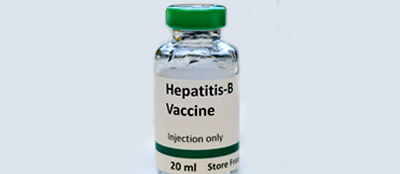

The age-old medical adage that proclaims ‘Prevention is better than Cure’ couldn’t be truer than when applied in the case of Hepatitis, a deadly disease of the liver caused by some of the viruses that are known as Hepatitis A, B & C viruses. And the worst part of the whole episode is that these viral types are highly contagious – meaning they can be transmitted from person to person, albeit their mode of transmission being different. However, the good news is that these life-threatening disease conditions can be prevented through vaccination.
Even though vaccines for hepatitis A and B are mandatory for babies born in most developed countries and so prevent the onset of the disease for most adults, anyone having missed the inoculation during infancy may be vaccinated later in life, thus acquiring long-term protection from infection. What is more, vaccination can prevent infection for a person who has just been exposed to the virus, although inoculation within 24 hours of potential exposure is considered the best.
In the event of your planning a transcontinental flight to a region where prevalence of hepatitis A is fairly well known and you have missed the immunization during infancy, medics would strongly recommend getting Hepatitis A Vaccine before jumping into the jet. Of course it entails getting two shots timed six months apart and so you can have the second shot after coming back home. This will ensure protection while you were away into unknown territory.
Nevertheless, if you are so unfortunate as to avail none of the above preventive measures, medics would still be ready to push an injection known as Immune Globulin, a substance obtained from healthy immunoglobulin proteins, called Antibodies, derived from donors. Injected into your bloodstream, these antibodies would prevent infection for you. Immune globulin would also prove helpful even when you are not protected by regular vaccine, yet are exposed to Hepatitis A virus.
Major side effects of the Hepatitis A vaccine comprise soreness where the needle had penetrated your body at the time of the inoculation. Of course, slight headache and lethargy are also common in many cases. Allergic reactions are rare and far between. However, sudden onset of flu-like symptoms may need quick medical attention.
Regardless of age, sex, color and regional anomalies, medics unanimously recommend Hepatitis A vaccination for all, if found lacking in primary childhood inoculation, while risk factors consist of using the same needle during intravenous drug use. It also entails indulging in sex with multiple partners, male to male sex, tattoos and/or body piercing conducted by persons using un-sterilized tools. Sharing of razor and toothbrush with an infected person and visit to countries where Hepatitis B is common also causes infection. Continued dialysis is often considered as one of the factors that causes infection.
Hepatitis B vaccination involves three shots given one after the other, while the second and third shots are administered 1 month and 6 months after the first shot was given. So, if you are scheduled to visit a country where Hepatitis B is common, it would be prudent to start the vaccination sequence at least six months prior to the date of the journey to ensure full protection.
However, here again, an injection of Immune Globulin can be of great help if you have become unable to go for all three shots as directed by the doctor. Nevertheless, this would provide you with the much needed but temporary protection from the disease.
Side effects of hepatitis B vaccination have been least reported, save and except a feeling of soreness where the needle had jabbed during the inoculation.
Unfortunately, there is no vaccination for hepatitis C as of now, while doctors recommend more healthier and hygienic lifestyle to prevent infection. However, since hepatitis C is spread through contact with contaminated blood, the ideal preventive means would be avoid sharing hypodermic needles that are likely to transfer traces of blood from one person to another. Contact with substances that contain contaminated blood, such a tissue, surgical bandage, or even unclean hands and fingers are liable to spread the disease. Safe sex, no doubt is a good example of staying away from hepatitis C.
And lastly, lead a hygienically safe way of life in order to stay away from the hazards of living a life with a damaged liver, infected by hepatitis viruses.

Middle aged Maureen visiting her ailing daughter in New Jersey wailed in the middle of t
read more
Have you ever dismissed a burning sensation in your chest or upper abdomen as simple ind
read more
Colorectal Cancer (cancers of the colon and rectum) is the second leading causes of deat
read more